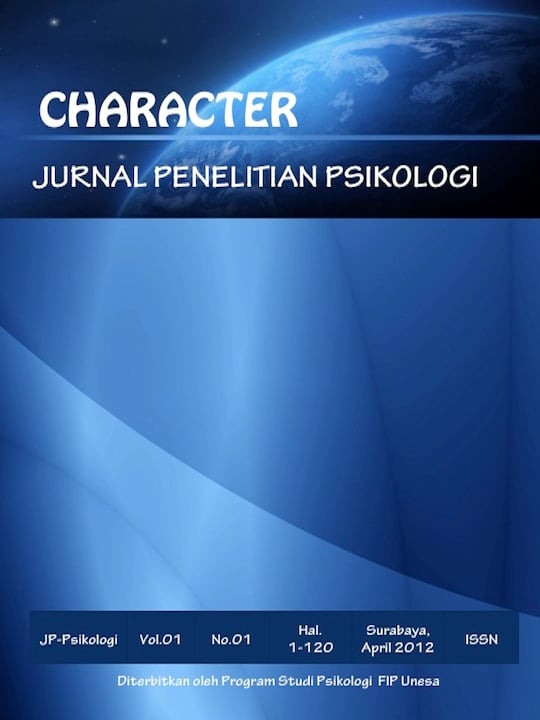HUBUNGAN ANTARA PARENTING STRESS DENGAN PARENTING SELF-EFFICACY PADA IBU YANG MEMILIKI ANAK DISABILITAS INTELEKTUAL
DOI:
https://doi.org/10.26740/cjpp.v8i5.41311Abstract
AbstrakPenelitian ini bertujuan untuk mengetahui hubungan antara parenting stress dengan parenting self- efficacy pada ibu yang memiliki anak Disabilitas Intelektual (DI). Parenting stress merupakan keadaan tegang dan cemas yang berlebihan terkait dengan peran sebagai orang tua. Kunci utama untuk dapat bertahan dari tantangan dan tuntutan yang dapat memicu parenting stress adalah komitmen orang tua dalam menjalankan praktik parenting, dengan kata lain parenting self- efficacy. Parenting self-efficacy merupakan persepsi orang tua terhadap kemampuan mereka terkait tugas dalam pelaksanaan praktik parenting. Metode yang digunakan dalam penelitian ini adalah metode penelitian kuantitatif, dengan teknik korelasional. Subjek dalam penelitian ini adalah ibu yang memiliki anak DI usia 6 sampai dengan 12 tahun yang bersekolah di Sekolah Luar Biasa (SLB) sebanyak 74 subjek. Teknik analisis data yang digunakan adalah uji korelasi pearson product moment dengan bantuan perangkat lunak komputer. Nilai koefisien korelasi antara variabel parenting stress dengan variabel parenting self-efficacy adalah sebesar -0,494. Hasil yang diperoleh dalam penelitian ini menunjukkan bahwa terdapat hubungan signifikan yang bernilai negatif antara parenting stress dengan parenting self-efficacy pada ibu yang memiliki anak DI.
Kata Kunci: parenting stress, parenting self-efficacy, disabilitas intelektual
Abstract
This research aimed to analyse the relationship between parenting stress and parenting self- efficacy among mothers who have children with intellectual disabilities. Parenting stress is a condition of excessive tension and anxiety associated with parenting. The main key to survive the challenges and demands that can trigger parenting stress is the commitment of parents in carrying out the parenting practices, in other words parenting self-efficacy. Parenting self-efficacy is the perception of parents on their abilities related to tasks in implementing parenting practices. The method used in this research is a quantitative research method, with correlation techniques. The subjects in this research were mothers who had children aged 6 to 12 years who attended Special School (SLB) as many as 74 subjects. The data analysis techniques used is the pearson product moment correlation test with the help of computer software. The value of the correlation coefficient between parenting stress and parenting self-efficacy is -0.494. The results indicate that there is a significant negative relationship between parenting stress and parenting self-efficacy in mothers who have intellectual disabilities.
Keywords: parenting stress, parenting self-efficacy, intellectual disability
Downloads
Downloads
Published
How to Cite
Issue
Section
License
Authors who publish in this journal agree to the following terms:
Copyright in any article is held by the author.
The author grants the journal, publication rights with the work simultaneously licensed under a Creative Commons Attribution License that allows others to share the work with an acknowledgment of the work's authorship and initial publication in this journal.
Authors may enter into separate, additional contractual arrangements for the non-exclusive distribution of the journal's published version of the work (e.g., posting it to an institutional repository or publishing it in a book), with an acknowledgment of its initial publication in this journal.
Authors are permitted and encouraged to post their work online (e.g., in an institutional repository or on their website) prior to and during the submission process, as this can lead to productive exchanges, as well as earlier and greater citation of published work.
 Abstract views: 910
,
Abstract views: 910
, PDF Downloads: 1688
PDF Downloads: 1688





